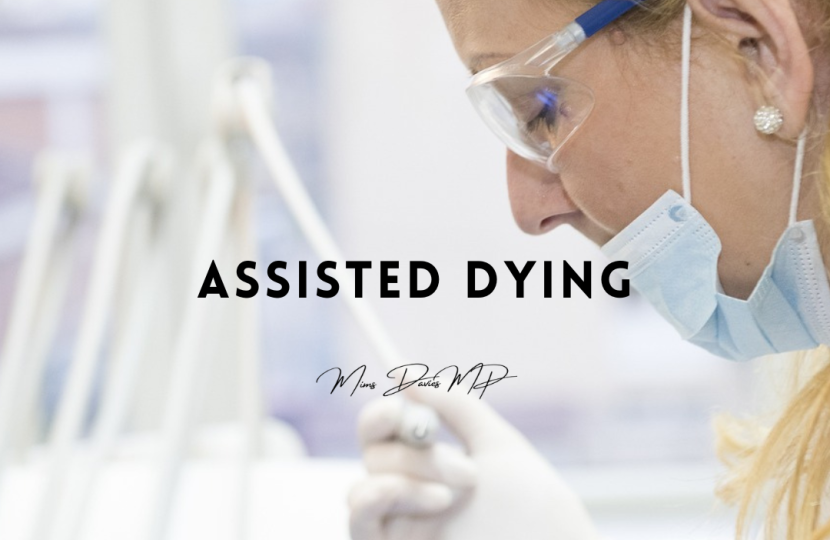
Let me start by reiterating that I completely recognise there are deeply held views on this hugely difficult debate and I have received a great many personal, heartfelt emails from constituents detailing their thoughts and experiences from both sides of the argument. I really appreciate these and am grateful to all those who have kindly shared their opinions, views and concerns. I fully accept that assisting or ‘encouraging’ suicide, assisted dying and euthanasia are all subjects on which it is entirely possible for people to hold widely different but defensible opinions and it can be highly emotive due to very individual circumstances related to this. Death is never an easy process and, as we know, can be incredibly harrowing and painful for all involved.
As you will know, Kim Leadbeater MP has introduced the Terminally Ill Adults (End of Life) Bill to Parliament. This Bill would legalise assisted dying for terminally ill people with less than six months left to live, with certain safeguards. On Friday 29th November, the Bill passed its second reading with 330 MPs in favour and 275 against.
I stood on a manifesto that maintained assisted dying is a matter of conscience and a change in the law would only be made if it became the clearly expressed will of Parliament to do so. This is a deeply personal issue which each MP will have carefully considered in line with their own beliefs, faith and experience while also listening to their constituents’ thoughts and I was proud the issue of assisted dying was debated in the House of Commons with such compassion and great respect. You can read my thoughts in full below around the bill and the outcome here:
Mims Davies MP shares views after vote on Assisted Dying Bill today | Mims Davies
Coping with terminal illness is distressing and difficult both for the patient and their families. These cases are truly moving and deserve the highest degree of compassion. No one wants their loved ones to suffer at the end of their lives. Because of that, we must do much, much better to improve palliative care and hospice services in this country to ensure everyone has the most painless death possible.
Constituents have now contacted me to share their worries about the Public Bill Committee, set up by Kim Leadbetter MP, the Bill’s sponsor, that will scrutinise the Bill in its next stage through the House of Commons. The Committee is made up of 23 MPs who will go through the Bill line by line. Currently, the Committee is comprised of 14 supporters of the Bill - including ministers from the key ministries charged with implementing this legislation, should it become law – and 9 opponents. It is convention that the make-up of these committees reflects a broad range of views, experience and political party affiliation across the House of Commons following a Bill’s Second Reading.
I do share concerns the Committee is somewhat unbalanced and appears in favour of those who support changing the law, and that this has contributed to the removal of existing safeguards in the Bill from its Second Reading, such as the requirement for a High Court Judge to decide whether to approve an application for assisted dying.
Like many, I do worry that, as we have seen in other countries that have moved to legalise assisted dying, the scope and criteria for eligible persons could significantly widen in the future. I believe it is really important we study the examples of Belgium and Canada, where there are cases of disabled people, those with poor mental health, or those living with dementia becoming eligible for an assisted death.
However, I do want to be clear that the Bill has only had its first vote in the House of Commons and will require many months of further scrutiny and parliamentary approval before it could become law. Given the huge importance and the societal implications of this Bill, I will be following its progress very closely as I have with the current committee process.
You may be interested to read more about the current stage of the process here:
The assisted dying bill: How does the amendment process work at Committee stage?




